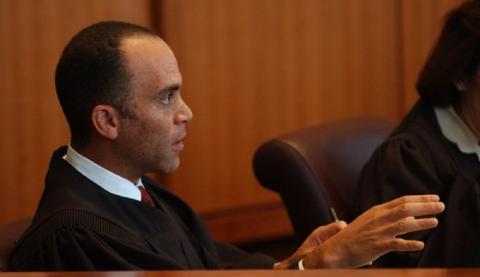The Atlantic's Andrew Cohen sat down with former Texas Chief Justice Wallace B. Jefferson to discuss the consequences of partisan judicial elections.
A Republican in the most Republican state in the Union, a black man in a state dominated by white conservatives, he has nonetheless been a dogged voice on behalf of Texas's poorest and least powerful litigants. He has also been a consistent critic of the dubious way in which Texas selects and retains its judges—through a series of judicial elections that are unabashedly partisan.
Chief Justice Jefferson, having left his seat for private practice, had critical words for partisan politics:
That makes no sense. These votes are not based upon the merits of the judge but on partisan affiliation and if its not party affiliation it's the sound of your name. I said that almost all the Republican judges in Harris County lost—well, there were three exceptions. And in each of those cases, the Democratic candidate had an ethnic-sounding name. That's no way to differentiate among candidates. And if it's not partisan affiliation or the sound of your name, it's how much money you can raise—which, as I said, undermines confidence in impartial justice.
Most people would agree that the best judges are those with the best ability to impartially judge the law, not play party politics. Shouldn't we question the same partisan electoral process that produces representatives charged with making the laws in the first place?
Photo Credit: Baylor University
